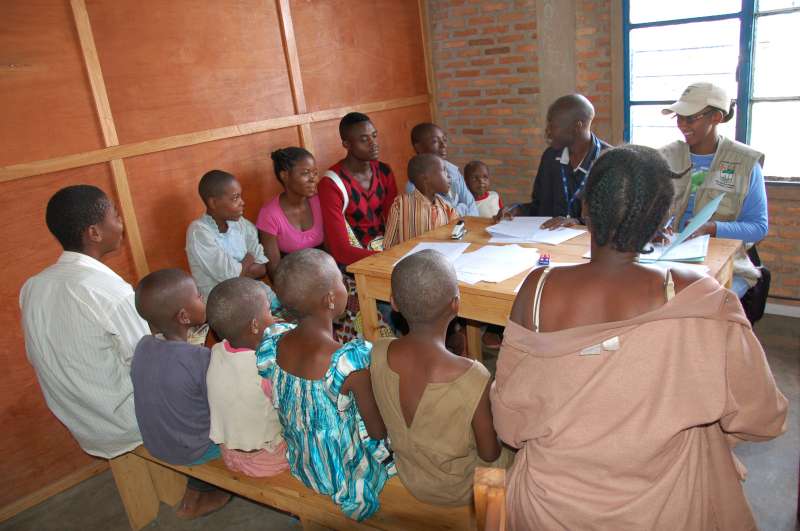Tanzania:
Nacogdoches eye doctor traveling to Tanzania to help Albino children
NACOGDOCHES, TX (KTRE) -
A Nacogdoches eye doctor will be traveling to Tanzania, Africa next week with Step by Step Missions to give low vision devices to nearly 200 Albino kids.
It's a little known fact that people with albinism have low vision.
"If you're born with albinism, you are visually impaired. Every one of them are. Usually their vision ranges from 2100 to 2400," said Dr. Ashley Risner, an optometrist with the Nacogdoches Eye Associates.
This is one of the reason's why Risner, who specializes in low vision rehabilitation, will be traveling to Tanzania on May 3.
"It's fairly rare in the United States, it's only about 1 in 20,000 people with albinism versus in Tanzania it's 1 in 2,000 people," said Risner.
In Tanzania, people with albinism are considered magical and are hunted by witch doctors and sometimes killed.
"The government has set up these safe houses and homes for the children to go to and a lot of parents give them up because they think that there is something wrong with them," said Risner.
Risner is one of twelve optometrists in the state who works with low vision patients. She will be donating nearly 200 low vision eye kits to kids from age zero to twenty.
"The reason why there is a visual impairment is because the photo receptors, the cells inside the eye into the retina and into the optic nerve and brain, are actually made up of pigment cells. Of course, albinism people have less pigmentation so they have less pigmentation in the eyes so the signal doesn't get through as easily," said Risner.
She will be using her skills and low vision devices, like the dome magnifier, to help albino kids read and write.
"I just saw how it could change someone's life and it does. I see that all the time," said Risner.
This will be Risner's first trip to Africa and she is excited to see the look on the kid's faces when they realize they can finally see.
"I work with that type of patient here in the United States so I wanted to do what I could," said Risner.
She will also be traveling with e3 Partners to Tanzania and says she has received funds for all of the eye kits from donations.
Copyright 2013 KTRE. All rights reserved.
Nacogdoches eye doctor traveling to Tanzania to help Albino children
NACOGDOCHES, TX (KTRE) -
A Nacogdoches eye doctor will be traveling to Tanzania, Africa next week with Step by Step Missions to give low vision devices to nearly 200 Albino kids.
It's a little known fact that people with albinism have low vision.
"If you're born with albinism, you are visually impaired. Every one of them are. Usually their vision ranges from 2100 to 2400," said Dr. Ashley Risner, an optometrist with the Nacogdoches Eye Associates.
This is one of the reason's why Risner, who specializes in low vision rehabilitation, will be traveling to Tanzania on May 3.
"It's fairly rare in the United States, it's only about 1 in 20,000 people with albinism versus in Tanzania it's 1 in 2,000 people," said Risner.
In Tanzania, people with albinism are considered magical and are hunted by witch doctors and sometimes killed.
"The government has set up these safe houses and homes for the children to go to and a lot of parents give them up because they think that there is something wrong with them," said Risner.
Risner is one of twelve optometrists in the state who works with low vision patients. She will be donating nearly 200 low vision eye kits to kids from age zero to twenty.
"The reason why there is a visual impairment is because the photo receptors, the cells inside the eye into the retina and into the optic nerve and brain, are actually made up of pigment cells. Of course, albinism people have less pigmentation so they have less pigmentation in the eyes so the signal doesn't get through as easily," said Risner.
She will be using her skills and low vision devices, like the dome magnifier, to help albino kids read and write.
"I just saw how it could change someone's life and it does. I see that all the time," said Risner.
This will be Risner's first trip to Africa and she is excited to see the look on the kid's faces when they realize they can finally see.
"I work with that type of patient here in the United States so I wanted to do what I could," said Risner.
She will also be traveling with e3 Partners to Tanzania and says she has received funds for all of the eye kits from donations.
Copyright 2013 KTRE. All rights reserved.







